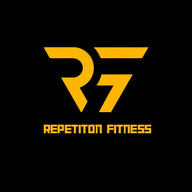Home vs Commercial Gym Equipment: What Warranties Really Mean (And Why It Matters Before You Buy)

If you're buying gym equipment for more than just yourself, the difference between home-use equipment and commercial-grade equipment is a lot bigger than most people realize. And it’s not just about the price — it’s about warranty, liability, lifespan, safety, and long-term cost.
Here’s the situation many gym owners, trainers, and business operators run into:
You need equipment for a studio, condo gym, hotel, or performance space. You shop online, find a “great deal” on equipment that looks just like the commercial stuff — same shape, same style, half the cost. Seems perfect.
But 60 days later? A cable snaps. A bench frame bends. A treadmill motor burns out. You go to file a warranty claim and the manufacturer tells you:
“Warranty void — this product was not rated for commercial use.”
Now you're stuck buying the same product twice, plus replacing damaged flooring, plus dealing with angry members or worse — legal issues.
All because of one thing:
You used home-use equipment in a commercial environment.
Let’s break down the three levels of fitness equipment warranties, what each one actually means, and how to choose the right category for your space.
1. Residential / Home-Use Equipment
Best for: Personal use only
Not allowed in public or multi-user environments
Who it’s made for:
Single-family homes, garage gyms, basements, personal training for yourself — not clients.
Expected usage:
2 hours a day max, a few days per week, 1–3 total users.
Warranty rules:
Warranty is ONLY valid inside a personal residence.
If used in any public or shared space, the warranty is immediately void.
Common mistake:
Using home gym equipment inside personal training studios or apartment gyms — even if only 5 people use it.
Why it fails quickly:
It’s built from lighter materials, lower-grade steel, weaker bearings, smaller motors, cheaper cables… because it was never designed for repeated, daily use.
2. Light Commercial Equipment
✅ Best for: Shared spaces with moderate traffic
⚠️ Not meant for high-volume training gyms
Who it’s made for:
Spaces where fitness is an amenity — not the business.
Examples:
-
Hotels
-
Condo + apartment gyms
-
Fire stations
-
Corporate wellness rooms
-
Airbnbs + luxury home gyms
-
Small office gyms
Warranty rules:
Valid only in non-dues-paying facilities and low-volume environments.
Why people choose this tier:
-
Stronger frames than home gear
-
Longer warranties
-
Still cheaper than full commercial
-
Designed to handle multiple users per day, not hundreds
3. Full Commercial Equipment
✅ Best for: Real gyms, studios, athlete facilities, performance centers
🏆 Warranty built for all-day, every-day use
Who it’s made for:
-
Public gyms
-
Personal training studios
-
Strength & conditioning centers
-
University + high school athletic facilities
-
Military & police gyms
-
Cross-training, powerlifting, and performance facilities
Why it's the only choice for commercial space:
-
Built for constant loading and impact
-
Highest grade materials, bearings, welds, belts, and motors
-
Longest and strongest warranties (frame, parts, labor)
Cost truth:
Commercial equipment costs more upfront — but far less over 5–10 years than buying and replacing cheap home-use gear over and over.
Why Warranties Matter More Than Price
When you buy the wrong grade of equipment, you don’t just lose money. You risk:
❌ Repairs and downtime
❌ Voided warranties
❌ Member complaints and bad reviews
❌ Replacing equipment every 12–18 months
❌ Injury liability (this is the BIG one)
One broken weld on a cheap bench can turn into a lawsuit, not just a return request.
How Repetition Fitness Helps You Choose the Right Tier
We don’t sell “Amazon gym gear.”
We supply equipment rated for real-world use — and we tell you upfront which category you actually need based on your traffic, budget, and goals.
Why? Because we’re not just a fitness retailer — we’re trainers, coaches, and athletes who’ve used all three categories of equipment in real facilities.
We help you avoid the #1 mistake people make:
“Trying to save money by buying residential gear for commercial use.”
We protect your budget from long-term losses — and protect your gym from liability.
Final Word: Cheap Gear Is Always the Most Expensive Option
If you’re buying equipment for:
-
A gym
-
A studio
-
A condo or hotel
-
A business
-
A team or school
-
A multi-user environment
Then home-use equipment is the wrong choice 100% of the time.
The right question isn’t:
“What’s the cheapest equipment I can get?”
It’s:
“What equipment will still be working 5–10 years from now — and still under warranty?”
That’s where Repetition Fitness comes in.



